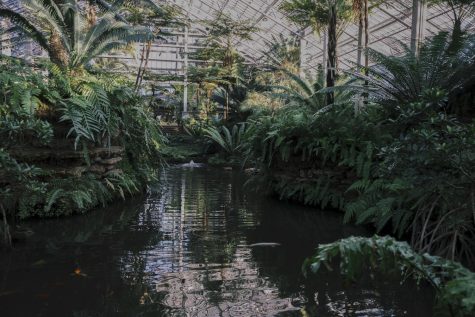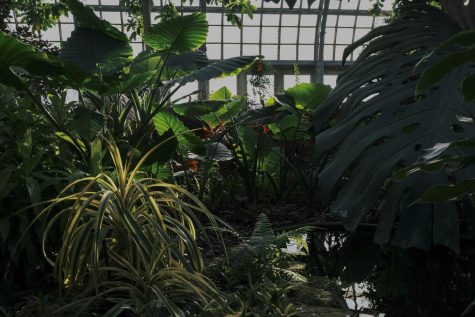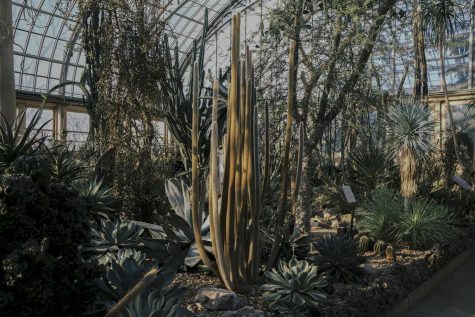Chicago non-profit sheds light on the positive impacts of plants
February 17, 2022

Chicago’s greenery noticeably fades away under the blankets of snow that come with Midwest winters, but incorporating plants into one’s home during the colder months can help combat the stressors of everyday life.
Tony Abruscato, president and founder of the Get Growing Foundation, a non-profit group dedicated to extending plant education across Chicago neighborhoods, said he started GGF in hopes of making an impact on Chicago’s under-resourced communities and extending plant education throughout Chicagoland’s neighborhoods.
“We really found that there was a need to bring green and green education into under-resourced communities throughout the Chicagoland area,” Abruscato said. “We found that [in] many locations you hear of food deserts, but also there’s a lot of places that have plant deserts, where there’s just no place for people to get plants.”
Abruscato explained the importance of plants lies in the fact that they can both impact mental health and also contribute to community safety through communal pride and involvement.

“We find that studies will show that buildings with vegetation out in front of them experienced 52% less violent crime than those that don’t,” Abruscato said. “In a long term approach, it’s not just trying to do something pretty in a neighborhood, but it’s actually working to reduce the overall crime levels.”
The GGF found that their largest impact lies in the under-resourced communities of Chicago, including South and Southwest Side neighborhoods such as North Lawndale, Garfield Park, Pilsen, McKinley Park and South Shore. Abruscato said the GGF donated more than 14,000 plants to those neighborhoods within the last year and realized there is a greater need for greenery education and plant shops all around Chicago.
“We’re finding that in almost every neighborhood that we go into … that people are happy to see us because they don’t necessarily have a plant shop there,” Abruscato said.
Abruscato said one of the more immediate and timely benefits of plants is their positive benefits to mental health, especially now as the COVID-19 pandemic lingers.
A study done in 2015 compared the psychological impacts of working on a computer versus interacting with indoor plants. The study concluded that plants can help reduce psychological and physiological stress while working on a computer does not. This difference is said to promote “comfortable, soothed and natural feelings” in people.

The Garfield Park Conservatory is one place where people can immerse themselves in plant life to experience the mental health benefits of plants, especially when Chicago’s greenery is limited. The conservatory, located in Garfield Park at 300 N. Central Park Ave., is easily accessible for both commuters and Garfield Park residents, and is one of many places Columbia’s Renegade Outdoor Collective visits to get club members closer to nature.
“I think it’s very important to have some sort of connection with nature, whether that be a plant on your desk, or going to the lakefront, going for a run, going to a nature preserve or Grant Park, what have you,” said Sage Brahmstedt, president of the ROC and a junior cinema and television arts major. “I just think that’s very important for us,” Brahmstedt said.
The Harold Washington Library, 400 S. State St., is close to Columbia’s campus and has plant life that is accessible to the public. The library’s ninth floor houses a winter garden with a glass ceiling, letting sunlight and green trees fill the space.
For those who want to start caring for plants at home, Abruscato recommends the snake plant, which requires little light and water. Abruscato also said it is one of the top-rated plants for air purification and is one of the only plants that purifies the air both at night and during the day.







